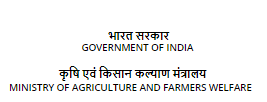IIPR Mini Dal Mill
Background:
Difficult-to-mill kinds of pulses, viz., pigeonpea, urd, and moong require pitting or scratching of
whole grains for ease of water or oil absorption applied for pretreatment. Pitting also reduces
treatment time. In vertical chakki, small size whole grains pass as such without splitting. Both of
the issues, adversely affect the quality of dal. Chakki could not dehusk flat seed of lentil for which
abrasive rollers are more suitable:
Technology Details:
To get uniform grain size and remove impurities, a reciprocating grader was attached with the IIPR
Dal Chakki. Raw grains must be graded at the time of arrival. Cleaned and graded uniform size
grains can be passed through an abrasive roller, attached with the unit for pitting or scratching, in
the first pass prior to water soaking or oil application pretreatment. Conditioning for several hours
is followed by sun-drying of treated grains for several days, which loosens the grip of husk over
cotyledons. The second pass of treated grains is made through rubber-steel disk vertical chakki.
The Uniform size of grains allows the constant gap between two disks and minimizes the problem
of whole grains in the dal. The abrasive dehusking roller can also be used for dehusking lentils and
other difficult-to-mill kinds of pulses. The soft dehusking mechanism in the second pass, causes
minimum scouring to precious cotyledons. Powdering losses are more with a repeated pass in
abrasive rollers commercially used. Driven by a 2.0 hp single phase motor IIPR Mini Dal Mill gives
the capacity of 75-125 kg/h for different pulses.


